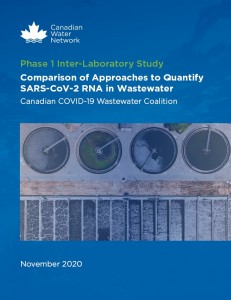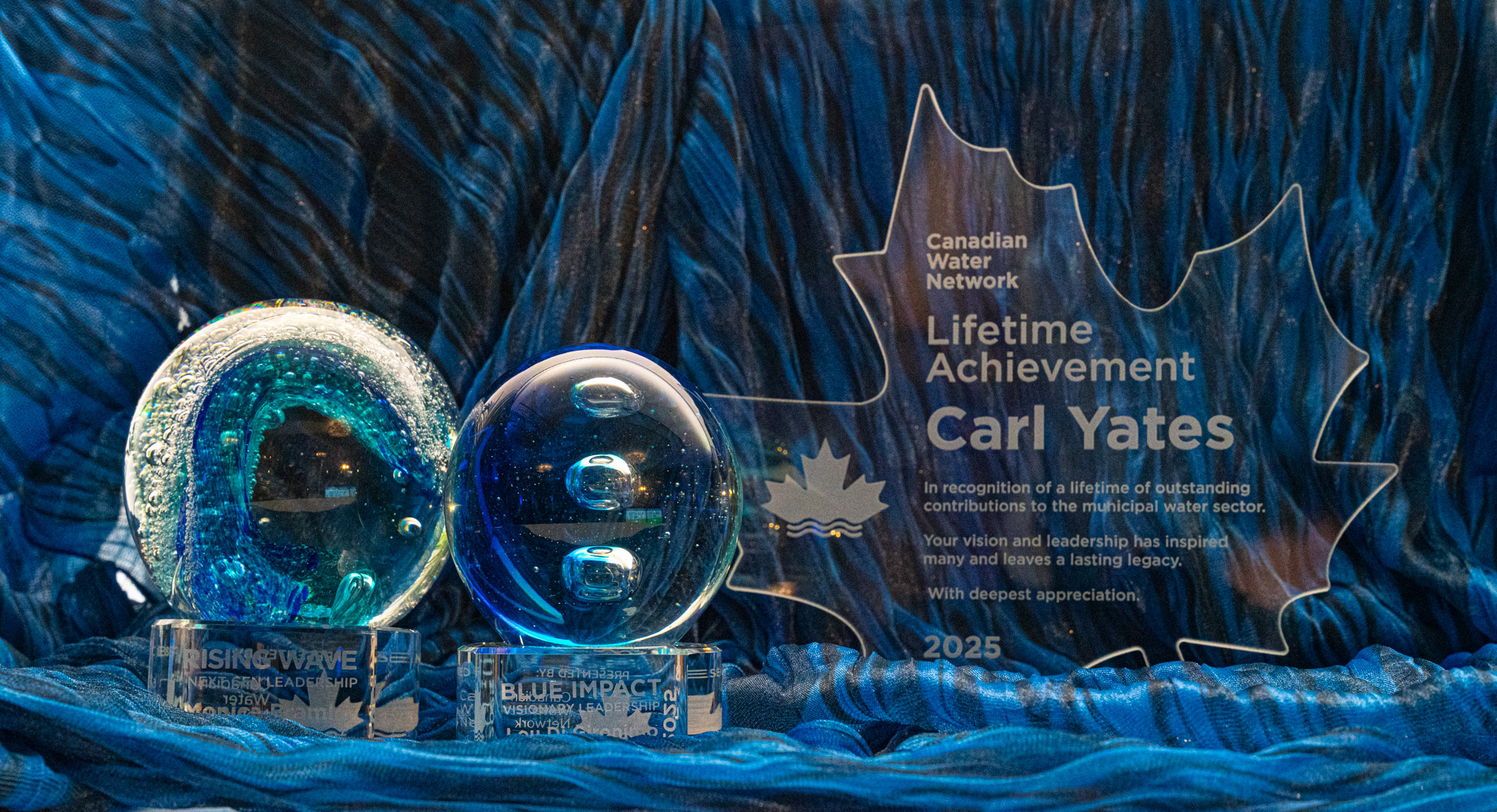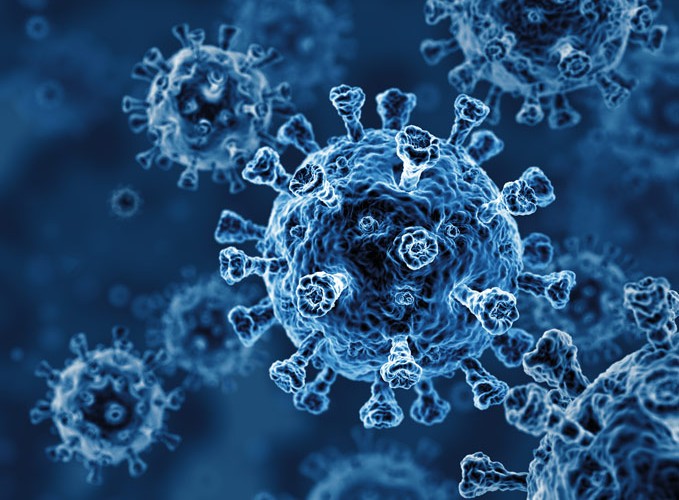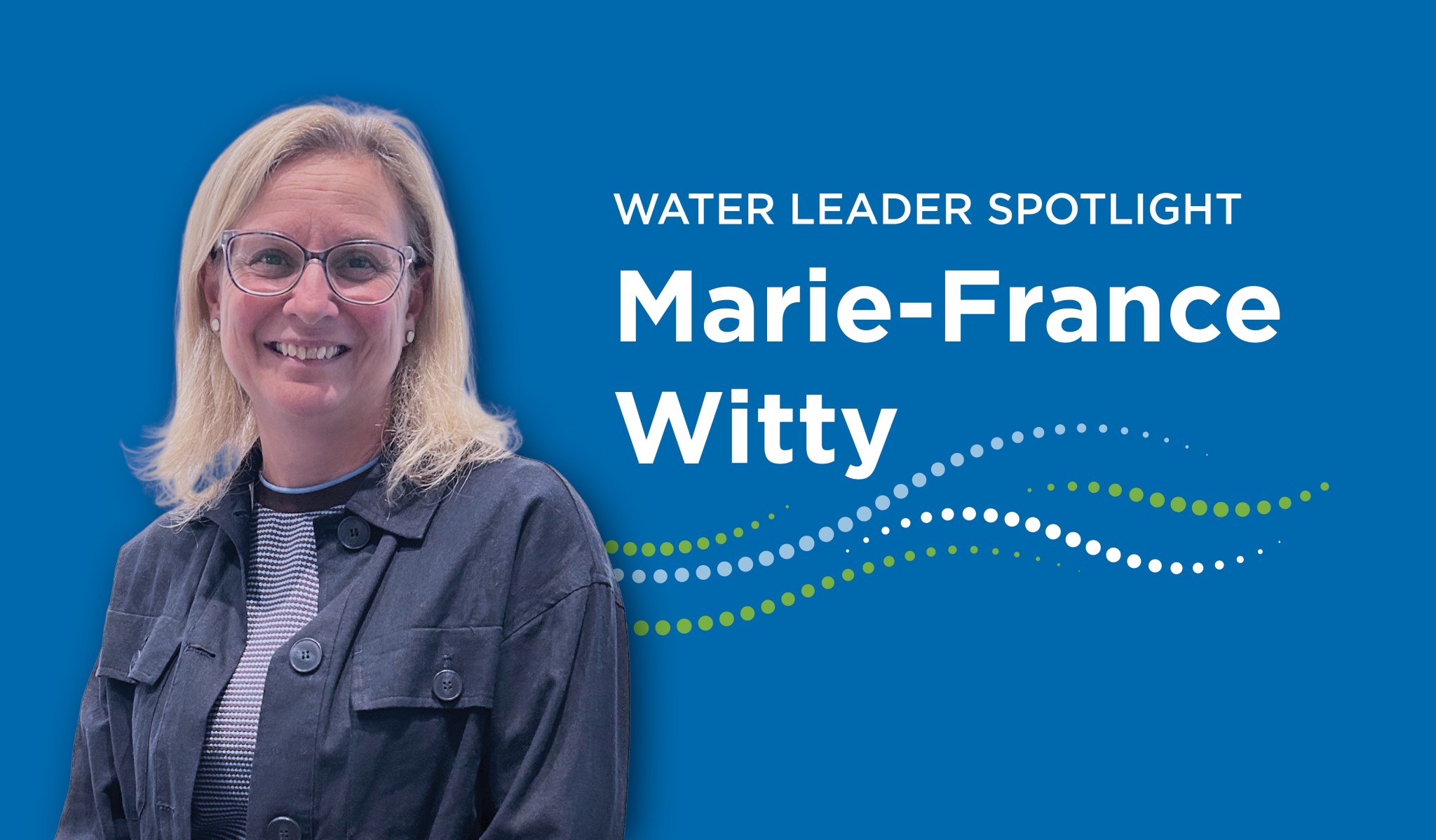Phase 1 of the Coalition’s Inter-Laboratory Study was conducted from July to September 2020 in collaboration with Canada’s National Microbiology Laboratory.
Monitoring of SARS-CoV-2 RNA in wastewater is a promising tool that complements other indicators of COVID-19 prevalence in a community, such as clinical testing. Since March 2020, research efforts to further develop this tool have accelerated across the globe and a wide range of approaches and techniques have evolved. However, to make reliable comparisons of data within and between communities, the inherent variability of these evolving methods must be considered. The goal of the Coalition’s Inter-Laboratory Study was to better understand the variability associated with methods that are being used in Canada.
A cross-section of eight laboratories, with demonstrated experience and capacity to analyze SARS-CoV-2 RNA in wastewater using RT-qPCR, participated in the study. The National Microbiology Laboratory in Winnipeg played an important role as the coordinating reference laboratory. Surrogates of SARS-CoV-2 were spiked at low and high concentrations into a common wastewater matrix and distributed to the participating laboratories as blind samples for analysis.
The findings of the Inter-Laboratory Study emphasized that different protocols can yield comparable results, provided that sufficient quality assurance/quality control measures are in place and reported in adequate detail. The study’s key results and recommendations have been captured in an outcomes report.
Who should read this report?
- Public health leaders seeking to understand the potential (and limitations) of wastewater surveillance.
- Decision makers considering the feasibility of wastewater surveillance programs.
- Laboratories in the process of developing or adapting SARS-CoV-2 RT-qPCR methods to various wastewater matrices.
Webinar series
Inter-Laboratory Study outcomes and implications
December 1, 2020 from 11:30 a.m. to 12:55 p.m. EST
The detection of SARS-CoV-2 RNA in wastewater is a tool that can potentially inform public health decisions during the COVID-19 pandemic. Although research is underway across the globe, methods and techniques are still far from standardized; this can make it challenging for municipalities and public health units to confidently apply methods in their own community and benefit from this complementary indicator.
From July to September, Canadian Water Network (CWN) led an Inter-Laboratory Study with a cross-section of eight laboratories who had demonstrated experience in RT-qPCR. The first session of this two-part webinar series presented the key findings from this collaborative study and focused on critical considerations for optimizing the methods used. Scientists from the participating labs shared their methodologies, highlighted important QA/QC considerations and responded to questions.
Who was the target audience for this webinar?
Investigators from public and private laboratories, government and public health leaders, university researchers, wastewater utility managers, consultants, and other industry professionals.
Bernadette Conant, CEO, Canadian Water Network
Dr. Steve E. Hrudey, Chair, Research Advisory Group, COVID-19 Wastewater Coalition
Dr. Alex Chik, Inter-Laboratory Study Coordinator, COVID-19 Wastewater Coalition
Dr. Chand Mangat, Research Scientist, Antimicrobial Resistance and Nosocomial Infections, National Microbiology Laboratory / Public Health Agency of Canada
Dr. Mark Servos, Professor and Canada Research Chair in Water Quality Protection, University of Waterloo
Dr. Robert Delatolla, Associate Professor, Civil Engineering, University of Ottawa
Dr. Melissa Glier, Research Associate, BC Centre for Disease Control Public Health Laboratory, University of British Columbia
Dr. Eyerusalem Goitom, Postdoctoral Researcher, Department of Civil, Geological and Mining Engineering, Polytechnique Montréal
Dr. Judy Yuanyuan Qiu, Research Associate, Faculty of Medicine & Dentistry – Laboratory Medicine and Pathology Department, University of Alberta
Wastewater-based epidemiology in Canada: Use cases, challenges and next steps
December 1, 2020 from 2:00 p.m. to 3:30 p.m. EST
Across the globe, wastewater-based epidemiology (WBE) monitoring of SARS-CoV-2 surged after initial trials were reported in late March 2020. WBE is a promising tool with the potential to provide an early warning of trends in community COVID-19 infection. There were numerous stories in the media about WBE monitoring at municipal wastewater treatment plants or further up the sewershed to track COVID-19 in communities and sub-communities, like university dormitories or long-term care facilities.
This webinar highlighted current and potential use cases of WBE in Canada and discussed some of the challenges and next steps in developing an effective tool to support public health decision-making. We identified knowledge gaps and needs related to the design and implementation of monitoring programs, as well as ethical and communication considerations for the successful deployment of this tool.
Who was the target audience for this webinar?
Wastewater utility managers, government and public health leaders, consultants and industry professionals, university researchers, and investigators from public and private laboratories.
Bernadette Conant, CEO, Canadian Water Network
Dr. Steve E. Hrudey, Chair, Research Advisory Group, COVID-19 Wastewater Coalition
Dr. Robert Delatolla, Associate Professor, Civil Engineering, University of Ottawa
Dr. Mark Servos, Professor and Canada Research Chair in Water Quality Protection, University of Waterloo
Dr. Yuwei Xie, Postdoctoral Fellow, Toxicology Centre, University of Saskatchewan
Dr. Mike McKay, Executive Director, Great Lakes Institute for Environmental Research; Professor, University of Windsor
Dr. Michael Parkins, Associate Professor, Medicine and Microbiology, Immunology and Infectious Disease, University of Calgary












